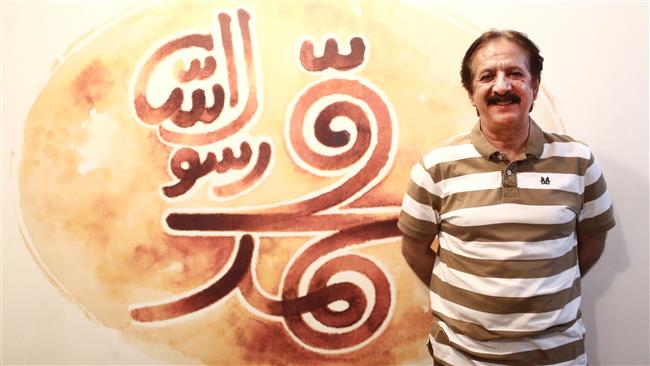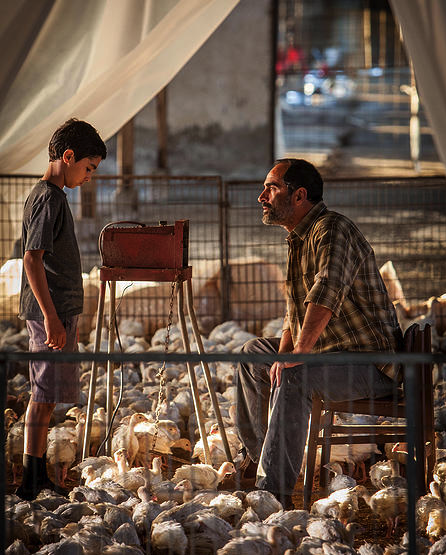
The Oscars are getting two Farsi-language films submitted this year—one from Iran and the other from Israel!
In what was no surprise, the Iranian committee that picks the annual submission for the Oscars has chosen, “Muhammad: The Messenger of God,” directed and co-written by Majid Majidi.
In what was a huge surprise, Israel has chosen a movie that was filmed in Farsi with Hebrew subtitles about an immigrant family from Iran and its travails as it tries to adjust to life in a new country. The film is titled “Baba Joon,” and may well resonate in any country with a large immigrant background—Israel, Canada, the United States, Australia, Brazil, Argentina.
They are just two of about 70 films submitted to the Motion Picture Academy of Arts and Sciences, the Hollywood body that confers the Oscars. Only five of those submissions will eventually receive nominations and compete for the Oscar for Best Foreign Language Film next February. It would be a supreme irony if two Farsi-language films make the nomination list.
“Muhammad” is now showing in 133 theaters all across Iran. But it has not yet been bought for screening in any other country. There is opposition to the film from Sunni clergy, which may block it from being shown widely around the Islamic world.
In Iran, the industry says the film has so far grossed $2 million after one month in Iranian theaters, which is not very much for a film that everyone now says cost $40 million to make.

Majidi’s earlier film, “The Children of Heaven,” was one of the five nominees for Best Foreign Language Film in 1998. Only one Iranian film has yet won an Oscar. That was Asghar Farhadi’s “A Separation” in 2012.
This year’s selection tells the story of Muhammad from birth through age 12, ending with his first visit to Damascus, where Bahira, a Christian monk, predicts that he will one day become a prophet. The 171-minute film is the first of a planned trilogy covering Muhammad’s full life.
In Israel, “Baba Joon” competed last week in Israel’s national film award competition, called the Ophir Awards. It won the awards for Best Film, Best Cinematography, Best Original Music, Best Production Design and Best Casting—a runaway success. The top film in the Ophir competition is automatically submitted to the Oscars.
Most of those involved in the film are Iranian expatriates—but not all of them Jews. The star is Navid Negahban who was born in Mashhad and then emigrated to Germany. After several years, he moved to Hollywood, where his most recent film was the role of an Iraqi in “American Sniper.”
In “Baba Joon,” his wife is played by a British-Iranian actress and his brother by an Iranian-American. The son, around whom the film is centered, is played by a 14-year-old Israeli-Iranian, Asher Avrahami, who was discovered in the south Israel village of Zrahia, the same village where director and screenwriter Yuval Delshad grew up after his family moved to Israel from Iran.
The music was crafted by Eyal Said Mani, who was born in Tehran as a Muslim and took a spiritual journey that led through Sufism and then to Judaism late in life.
The film is about an immigrant family in rural Israel. Yitzhak (Negahban) runs the turkey farm his father built with his own two hands after they emigrated from Iran. When his son, Moti, turns 13, Yitzhak teaches him the trade, hoping that he will continue the proud family tradition. But Moti doesn’t like working in the turkey barn; his passion is fixing up junkyard cars and bringing them back to life.
Moti’s mother Sarah (Viss Elliot Safavi) tries to reconcile between the father and son, while the grandfather pushes Yitzhak to take a firm hand with his son.
Yitzhak takes Moti’s refusal to work in the turkey barn as a personal rejection. Though he loves his son dearly, he makes it his mission to impose the family farm on Moti.
The arrival of Darius, the uncle from America (David Fariborz), sets off a chain of events that will undermine the familial harmony. Soon enough, Yitzhak will learn that his son is just as stubborn as he is. The conflict is inevitable.
“Baba Joon,” says the film website, “depicts the struggle of every man standing at the crossroads of heritage and individual freedom, and deals with the difficulty of bridging the generational gap;… it is a story of freedom and personal independence in a familial and social setting that leaves no room for either.”
Director and screenwriter Delshad says, “My family left the beautiful city of Shiraz in Iran and immigrated to Israel, leaving behind property, business and a glorious culture, and arriving in a remote village in southern Israel, where they tried to build a new life and a new identity.
“We, the new generation, were born into a new identity, while our parents held onto their past.
“The immigrant generation holds on to the familiar with all of their might, to their culture and Persian traditions, and naturally wishes to pass on this culture’s codes to the next generation. The younger generation, however, seeks out a new path, and is resistant to accept Persian tradition, which they see as outdated.
This resistance undermines the immigrant generation’s base, their origin, and is the source of many familial conflicts. The film ‘Baba Joon’ is about this conflict.”
